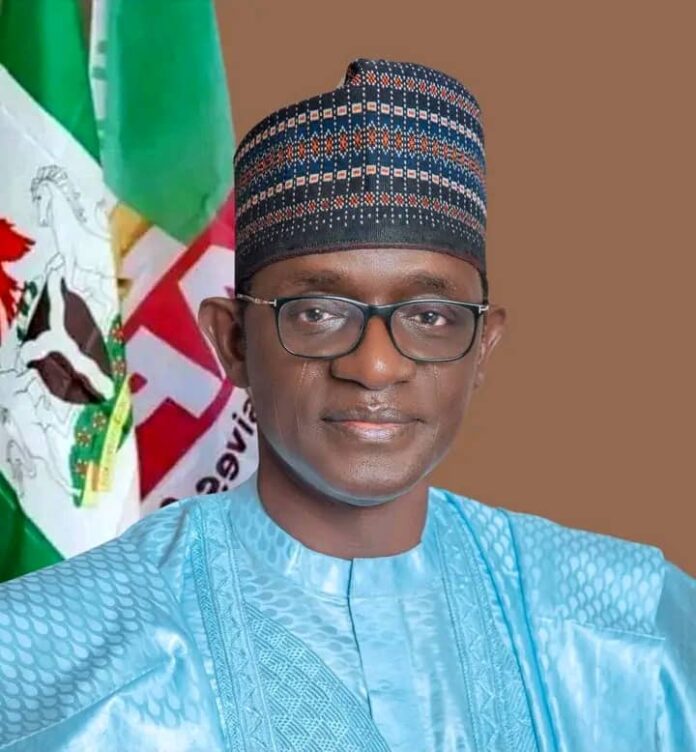HBD Buni: The Leader Who Forfeited His Inheritance for Peace (2), by Hassan Gimba
The Arbiter
“Money doesn’t change men; it merely unmasks them. If a man is naturally selfish, arrogant, or greedy, the money brings that out; that’s all.” – Henry Ford.
Last week, while extending our birthday wishes to the Governor of Yobe State, we underscored his honourable character and concluded by asserting that this was but one facet of what makes him a truly admirable leader, promising to substantiate this claim with further examples.
READ ALSO: HBD Buni, the Leader Who Forfeited His Inheritance for Peace (1), by Hassan Gimba
Let us, however, not dwell on his commendable efforts in reforming and repositioning Yobe’s education sector since declaring a state of emergency on it upon assuming office on 29 May 2019. But it is common knowledge that he has built over seven mega schools with 30 classrooms each and a student capacity of 1,200 and seven smaller ones with 12 classes each and a capacity of about 800. He has already embarked on building eight additional girls’ senior secondary schools to reverse girl-child school drop-out numbers and renovated about 50 others.
Nor shall we explore his transformative work in the health sector, which has been so effective that other governors openly cite his achievements as benchmarks for their aspirations.
They have to because he has built and equipped at least one primary health care in each of the state’s 178 wards, constructed and equipped to international standard the largest maternity centre in the country at the Yobe State University Teaching Hospital in Damaturu as well as built special baby care units in Gashua, Potiskum and a diagnostic centre at the Yobe State University Teaching Hospital. He has also built officers’ quarters there as well as 150-bed capacity dormitories for medical students and a 200-bed capacity hostel at the school of nursing, Damaturu.
Equally, I will refrain from delving into his strides in commerce, where he has established five modern markets in a state that previously lacked any facilities worthy of the name, even though his visionary initiative in Potiskum—a world-class trailer park designed as a hub of commercial activity—deserves attention. This ambitious project incorporates a hotel, a market, an adjoining cattle and grain market, and potentially a railway station, should the governor’s plans come to fruition. Once operational, it is anticipated to generate at least 5,000 direct and indirect jobs. Then there is the plan, in partnership with Qatari investors, to set up a cement company and meat processing factory in the state.
Nor do I have to reveal that with scarce resources amidst Boko Haram threats, he was able to complete the rehabilitation of the Katarko-Goniri and Siminti-Godowoli roads. Those of Yunusari-Kanamma, Geidam-Bukarti, and Bayamari-Yunusari are about to be completed, too. This is apart from the about 3,000 houses his administration has built in the 17 local governments of the state, providing the estates with basic facilities.
Nor shall I delve into his unprecedented efforts in youth empowerment, such as launching arguably the largest empowerment scheme in any Nigerian state, valued at ₦5 billion, or providing ₦500 million in agricultural loans to over 4,000 teachers through the state microfinance bank, enabling them to contribute to food security.
Neither will I expound on the transformative empowerment initiatives that have seen over 5,000 young people equipped with practical skills—from carpentry and plumbing to modern agricultural practices—and subsequently supported to establish sustainable livelihoods. These initiatives are vital in a region where unemployment and idleness have often fuelled insecurity. Not to be overlooked are the students sponsored to pursue higher education, both locally and abroad, in diverse fields.
READ ALSO: Now that MMB is APC interim chairman, by Hassan Gimba
These achievements alone speak volumes about the governor’s exemplary leadership qualities and his unwavering commitment to the welfare of his people. His leadership is marked by a style and substance that distinguishes the great from the ordinary.
Governor Mai Mala Buni stands out as a poised and cultured leader, adept at calming tensions and steering through crises with remarkable equanimity. He extends goodwill even to those who oppose him—an uncommon trait in a political era where power is often displayed through vindictiveness.
A consummate bridge-builder, Governor Buni is a cosmopolitan leader who seamlessly connects with local communities while maintaining a global perspective. His readiness to sacrifice personal interests for the sake of peace exemplifies the qualities of a statesman.
The ongoing security challenges in Nigeria stem, in part, from a populace that feels alienated from the state. Leaders like Governor Buni, who make everyone feel valued and included, are key to disarming dissent and fostering national unity. His charisma and inclusivity resonate not only with aggrieved citizens but also with those advocating for separatist causes, who may find renewed faith in a united Nigeria under such leadership.
Governor Buni’s tenure as the Interim National Chairman of the APC Extraordinary Caretaker Committee exemplifies his adeptness at conflict resolution. Through dialogue, he defused numerous tensions, dissuading organisations from embarking on potentially disruptive protests.
Furthermore, his instrumental role in facilitating the release of Sheikh Ibrahim El-Zakzaky, the leader of the Islamic Movement in Nigeria (IMN), led to a cessation of the Shiite-led street protests that once paralysed parts of the country. This single act alleviated tensions, reduced collateral damage, and allowed security agencies to focus on combating other criminal elements, thereby enhancing national security.
Henry Ford’s observation, “Money doesn’t change men; it merely unmasks them,” finds a fitting exemplar in Governor Buni. Power has magnified his innate virtues—humility, compassion, empathy, generosity, and an unwavering commitment to harmony and the upliftment of the underprivileged. His legacy is a testament to the transformative potential of authentic leadership.
Hassan Gimba, anipr, is the publisher and CEO of Neptune Prime.
Follow the Neptune Prime channel on WhatsApp:
Do you have breaking news, interview request, opinion, suggestion, or want your event covered? Email us at neptuneprime2233@gmail.com





